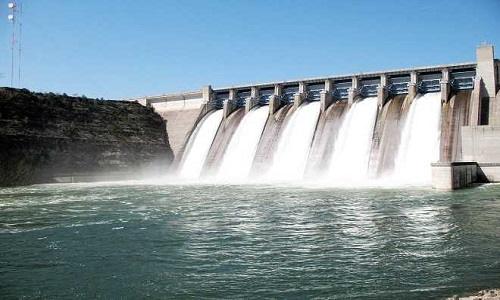The Kano State Government has announced a massive ₦20 billion investment in the construction of seven small-scale dams, with a combined storage capacity of 1.3 billion litres. The dams, to be located in rural local government areas, will serve both irrigation and social needs, aiming to transform the agricultural landscape of the state.
The announcement was made by the Commissioner for Agriculture and Natural Resources, Dr. Danjuma Mahmoud, during a two-day review workshop on the implementation of seed policy. The event, organized by the Nigerian Seed Industry Practitioners Forum in collaboration with Propcom+, HarvestPlus, the Federal Ministry of Agriculture and Food Security, and other stakeholders, brought together key players in the agricultural sector to address pressing challenges in seed policy implementation.
Represented by the ministry’s Permanent Secretary, Bashir Sanusi, Dr. Mahmoud reaffirmed the state’s commitment to rural development through targeted agricultural investments. He revealed that Kano has also procured over 200 modern farming tools, including power tillers, tractors, and combine harvesters, which will be distributed to smallholder farmer groups to support mechanized farming.
According to him, the state government is aligning with the national agricultural blueprint to strengthen seed reform, livestock development, and agri-mechanization. He called on more development partners and private investors to support the state’s efforts in improving agricultural productivity, storage, and marketing, particularly for rural farmers.
Read Also:
- Kano PDP rallies for new members, rejects coalition talks, defections
- Kano to reopen 5 additional entrepreneurship institutes
- Kano, Jigawa, Katsina oppose voting rights for Nigerians in diaspora
Speaking at the workshop, Dr. Yusuf Dollah, Country Manager for HarvestPlus Nigeria, noted that the seed sector has seen slow implementation of existing policies and stressed the need to build a coalition to close gaps before the policy expires in 2027. He expressed optimism that, with coordinated efforts, the nation could reach up to 80% implementation of its seed policy goals.
Dr. Oluwole Towolawi, Director of Seed Information, Data Management, and Capacity Building at the National Agricultural Seed Council (NASC), identified lack of synergy, inadequate funding, and delayed fund releases as major roadblocks. He emphasized that the 2022 National Agricultural Seed Policy aims to increase the availability of quality seeds, curb counterfeiting, and reduce malnutrition by 40% through the adoption of biofortified and climate-resilient seed varieties.
With the implementation of these bold initiatives, Kano is positioning itself as a leading agricultural hub in Nigeria. The multi-billion-naira dam project is expected to significantly improve irrigation access for rural farmers, reduce poverty among smallholder communities, and contribute to national food sufficiency.







